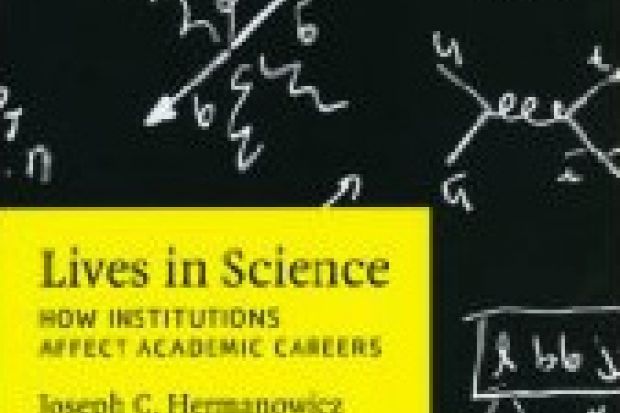Physicists are the most arrogant people in the world. They think they can do a better job of everyone else's work, except possibly mathematicians." That was the verdict of the public relations chief of one of the world's leading physics laboratories. She prefers not to be identified.
Physicists hold sociologists in the lowest esteem among other professions, in my experience. Many a time over the past three decades, I've heard physicists jeer about some piece of sociological research, ridiculing its crude methodology, its banality and its inconsequential conclusions. To a great extent, this is the physicists' loss: historians and social scientists have radically changed perceptions of the development of physics, often demonstrating that the physicists' view of their subject's back-story is simplistic and, in some cases, a collection of myths that serves to glorify "great figures" of the past.
Like all professionals, physicists are fond not only of their subject but of talking about each other. Every conference is a chance to swap gossip about who is doing the best work, who is getting grants, who has given up and gone into administration or popularisation. In such conversations, physicists often muse on the arc of a typical career in their subject - the insecurities of short-term post-doctoral positions, the struggle for tenure, the pressure to win grants and publish, the fight to stay at the top of research until it is more appealing to spend more time in the garden or the education faculty.
Such a view is based on myriad anecdotes - not a reliable, disinterested way to ascertain the true picture. Step forward Joseph Hermanowicz, an associate professor of sociology at the University of Georgia, who has monitored the careers of physicists in American academic institutions over a period of 15 years. His aim has been "to see what work means - and how these meanings have variously evolved - for people and their passages throughout an academic career".
His project began in 1994, when he interviewed a carefully chosen sample of 60 physicists from six representative universities across the US, and he followed it up a decade later by interviewing the same people. This is the first longitudinal study of its kind and is a valuable record. But I would question whether the sample is large enough to get an accurate sense of the careers of the thousands of academic physicists in America. Leaving this aside, the important question is whether we learn anything beyond the physicists' coffee-room ruminations and, perhaps, their prejudices.
Hermanowicz plainly regards physicists as special; not just any old scientists. Physicists, he says, stand "between the sacred and secular", seeking to understand the universe "as if to bring ordinary mortals closer to the sublime and incomprehensible powers of the divine". I doubt that this is a fair description of the physicists working on, say, acoustics, not to mention thousands of others; but the description shows Hermanowicz's respect for the profession.
Quite reasonably, he divides university physics departments into three categories: the elite (which focus mainly on research), the pluralist (which highly value teaching and research) and the communitarian, where teaching has top priority. He devotes a chapter to each of the three stages of the interviewees' careers - early to mid, mid to late, late to post - presenting extended quotes, tabular summaries and commentaries. During the dry, early part of the book, one cannot help but look forward to the last chapter, "Lives of Learning", in the hope that the author will deliver some worthwhile conclusions.
The opening paragraph of the final chapter does not augur well. It ends: "In allegedly one profession, one sees many highly differentiated careers." The analysis does not go much beyond this level of banality. To pick at random from one of the tabulated summaries, for physicists in mid-to-late career, the elite's main concern is "funding and time", the pluralists' main worry is "career direction or funding", while the communitarians are bored and are contemplating retirement. This and the other conclusions are clear and well justified. But they are so commonplace that, so far as I can see, they add little to our understanding of academic life and nothing to physicists' understanding of themselves.
It would surely have been more useful to focus on questions of concern about the community. For example, it would be intriguing to learn more about the experiences of women in the predominantly male environment of most physics departments. We certainly miss comparisons with careers in other branches of science, or indeed of any other discipline. I suspect that the results for other academic professionals would be similar.
Hard though I tried to take pleasure from this book, I failed. Its methodology seemed to me to be too rudimentary, its analysis unrewarding, its conclusions inconsequential. But am I being clear-sighted or merely arrogant?
Lives in Science: How Institutions Affect Academic Careers
By Joseph C. Hermanowicz
University of Chicago Press 344pp, £31.00
ISBN 97802263617
Published 1 May 2009
Register to continue
Why register?
- Registration is free and only takes a moment
- Once registered, you can read 3 articles a month
- Sign up for our newsletter
Subscribe
Or subscribe for unlimited access to:
- Unlimited access to news, views, insights & reviews
- Digital editions
- Digital access to THE’s university and college rankings analysis
Already registered or a current subscriber? Login
